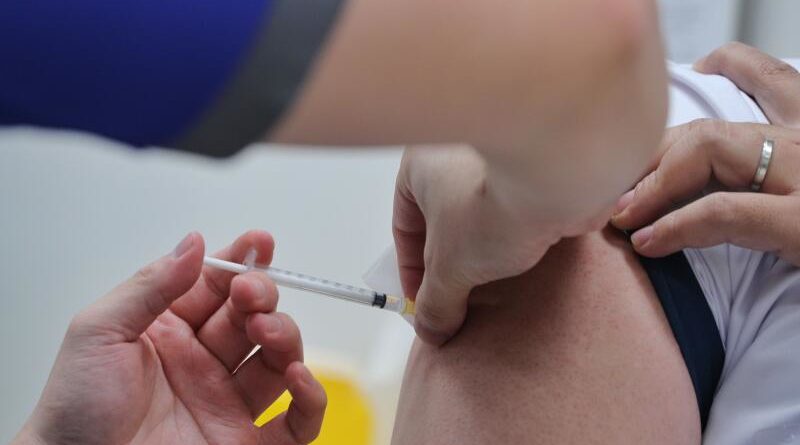COVID-19 VACCINE 101: SINGAPORE- All you need to know, from what to expect to how safe it is
.
The coronavirus COVID-19 is affecting 218 countries and territories around the world and 2 international conveyances.
.
From safety to efficacy and the nation’s vaccination strategy, Insight answers all the key questions.

Covid-19 vaccines and you: What to expect

Covid-19 vaccines will be free for all Singaporeans and long-term residents who are currently here.
This includes those here on an employment or S-pass, as well as work permit holders, foreign domestic workers, and dependant’s pass, long-term visit pass and student pass holders.
.
READ MORE

Covid-19 vaccines and you: How safe are they?

Multiple steps are being taken to ensure any Covid-19 vaccine approved for use in Singapore is safe.
First, the data must point to safety in animal studies before the vaccine is allowed to be tested on humans.
.
READ MORE

Covid-19 vaccines and you: What trials tell about the effects

In November, final results from late-stage clinical trials published by the companies showed that the vaccine was 95 per cent effective at preventing Covid-19.
There had been 170 cases of the disease in its trial of more 43,000 volunteers, of which 162 were observed in the placebo group and eight in the vaccine group. Ten people developed severe Covid-19, one of whom received the vaccine.
.

READ MORE
Covid-19 vaccines and you: Understanding Singapore’s vaccination strategy

Trying to run an effective vaccination programme while keeping Covid-19 infections down is a very challenging task, Associate Professor Lim Poh Lian, who is part of the expert committee on Covid-19 vaccination, said.
Hence, it makes more sense to start vaccinating now while the country can still afford to do so.
.

READ MORE
Covid-19 vaccines and you: How do they work?

Vaccines work by “showing” the immune system an important part of a virus and “training” it to recognise and remember the pathogen without exposing the patient to the risk of disease.
.

READ MORE
.
Covid-19 vaccines and you: How do they work?

SINGAPORE – Covid-19 vaccinations have started in Singapore for healthcare front-liners and will be rolled out to the elderly and the rest of the population progressively. From safety to efficacy and the nation’s vaccination strategy, Insight answers all the key questions.
Q: How do vaccines work?
A: Vaccines work by “showing” the immune system an important part of a virus and “training” it to recognise and remember the pathogen without exposing the patient to the risk of disease.
Traditional vaccines do this by injecting a killed or weakened form of a virus into the human body, so the immune system recognises the invader and begins summoning its “soldiers” – antibodies and T-cells – to get rid of it.
.
But mRNA vaccines like the Covid-19 ones by Pfizer-BioNTech and Moderna are different in that they contain only fragments of the virus’ genetic material, instead of the whole virus.
When these viral genetic fragments enter the human cell after injection, the genome fragments commandeer the cell to begin producing the signature spike protein of the coronavirus.
This trains the body to recognise a key part of the virus – the spike protein – without exposing the patient to the whole virus.
Q: Is China’s Sinovac also developing an mRNA vaccine?
A: No. The Sinovac vaccine is an inactivated vaccine, a platform that has been used in many other shots, such as the polio vaccine.
The coronavirus was first grown in monkey kidney cells, and then doused with a chemical that inactivated them, reported The New York Times.
This meant the viruses could no longer replicate, even though their proteins, including the spike protein, remained intact.
The inactivated viruses were then mixed with adjuvants, which are ingredients used to stimulate the immune system to boost its response to a vaccine.
Q: What are the latest updates for the Covid-19 vaccine being developed in Singapore?
A: Researchers from Duke-NUS Medical School are working with American biotechnology company Arcturus Therapeutics to develop an mRNA vaccine against Covid-19.
This is similar to the candidates being developed by Moderna and Pfizer-BioNTech, with one difference: The Lunar-Cov19 mRNA molecule is a replicating one that makes multiple copies of the viral spike protein after the injection.
The molecules in the other two vaccines are non-replicating.
Researchers told The Straits Times earlier that the replication more closely mimics how a viral infection plays out in the body, and could coax a stronger immune response from the body.
Early-phase clinical trials are still ongoing in Singapore.
The SingHealth Investigational Medicine Unit, which is administering the trials, is recruiting 100 healthy adult volunteers aged 21 years or older for this next phase of testing.
Those interested can e-mail [email protected] or call 6323-7544 or 8318-0685.
.














